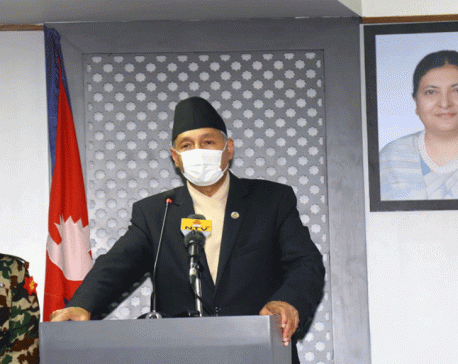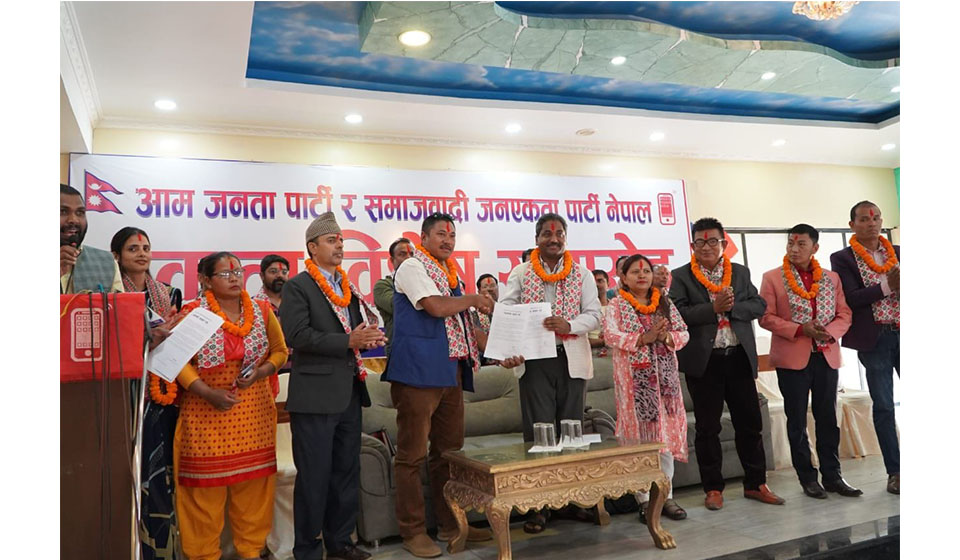
OR
NRB cuts policy rates, defers all loan repayments until mid July
Published On: March 30, 2020 10:44 AM NPT By: Republica | @RepublicaNepal

KATHMANDU, March 30: Nepal Rastra Bank (NRB) has introduced a number of relief measures aimed at providing relaxation on repayment of loans for businesses and individuals impacted by the Covid-19, ease liquidity in the banking system and promote electronic transactions and payment.
Issuing a circular to the bank and financial institutions (BFIs) on Sunday, the NRB has instructed them to extend the deadline of mid-April for the repayment of monthly or quarterly installment of any loans until mid-July.
The decision of the central bank in line with the government's directive comes as a major reprieve to all those businesses or individuals who have borrowed from BFIs.
Whether its individuals with home loans, auto loans and educational loans or firms that have borrowed from BFIs to do business do not need to be worried on defaulting on their loans until mid-July. This relief measure will be applicable also for those with credit card dues. BFIs will not deduct any EMI from the account of any borrower who have outstanding loans until mid-July. The central bank has also barred BFIs from collecting any penal charges or interest from such borrowers.
In addition to the extension of the deadline for debt servicing, it has also said that it will not require BFIs to classify such deferred repayment as non-performing loans and to provision such losses.
On the other hand, those borrowers who want to pay monthly or quarterly installment of their loans scheduled for mid-April (Chaitra end) will get 10 percent waiver in their interest payment, according to the circular.
Amid concerns about the shortage of funds in the banking system in the wake of the pandemic, the central bank has also come up liquidity-boosting steps. These include cut in the cash reserve ratio (CRR) requirement for BFIs by one percentage point to 3 percent. This means that the short-term fund will be released from the decision to slash the CRR—the portion of deposit that BFIs have to hold as reserves with the central bank. According to Nepal Bankers Association, the slash in the CRR will release nearly Rs 30 Bankers say that the monetary measures introduced by the central bank aims at providing relief to the market.
“The overall measures are positive. These decisions also aim to give a message that the central bank and the government is ready to ease liquidity and provide relaxation for those hit by the coronavirus pandemic,” said Bhuvan Kumar Dahal, the NBA President.
The central bank has also decided to increase the size of the refinance fund to Rs 60 billion from Rs 50 billion. The central bank channelizes the refinance fund through banking institutions to certain priority sectors at four percent while banks should not charge more than 8 percent interest rates from the borrowers.
However, some experts say that the measures are not adequate to address the banking and financial problems. “This is an extraordinary situation which requires unconventional measures. However, the rate cuts announced by the NRB are not enough to address the current problem,” said Nara Bahadur Thapa, a former executive director of the NRB. “It should have cut the CRR by further one percentage point, suspend credit to core capital cum deposit (CCD) ratio for a year and introduced term repo of two years to make credit easier and accessible for businesses,” he added.
You May Like This

Govt under fire for its inability to cut unnecessary expenses amid sluggish revenue collection
KATHMANDU, March 4: Analysts and economists have criticized the government for its failure to remain within the framework of its announced... Read More...

As Oli government limits its role to counting deaths during the greatest public health crisis, people are dying at an alarming rate
Experts say the government has decided to shred the constitution ... Read More...

Govt announces economic relief measures to support poor, businesses hit by Covid-19
KATHMANDU, March 30: The government has come up with a relief measures that aims to extend support to poor and... Read More...




Just In
- Sunkoshi-Marin Diversion Project’s tunnel construction nears completion, breakthrough scheduled for May 8
- Govt tightens security arrangement for Third Investment Summit 2024
- Pesticide residue found in vegetables in Nepalgunj
- Aam Janata Party and Samajwadi Jana Ekata Party merge
- 1,600 participants confirmed for Nepal Investment Summit
- Ilam-2 by-elections held peacefully, vote count likely to start tonight
- NEA schedules five-day power cut across Kathmandu Valley for underground cable installation
- Hundreds of passengers including foreign tourists in distress as poor visibility halts flights to and from PRIA







-1200x560-wm_20240427144118.jpg)





Leave A Comment